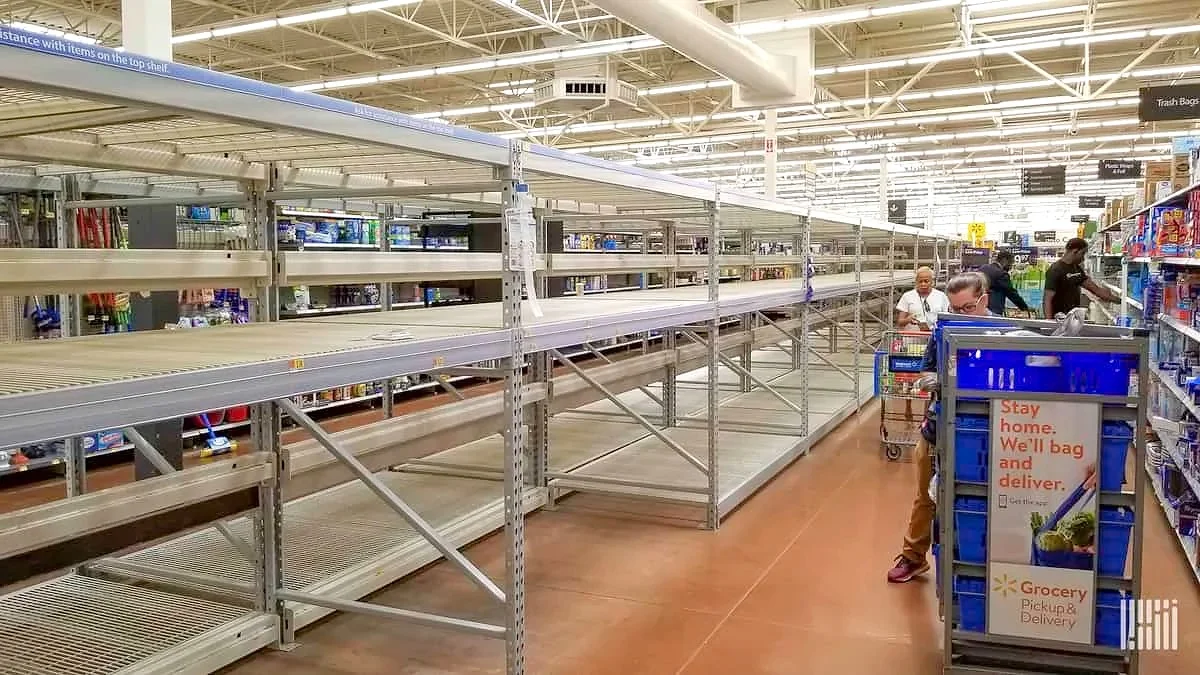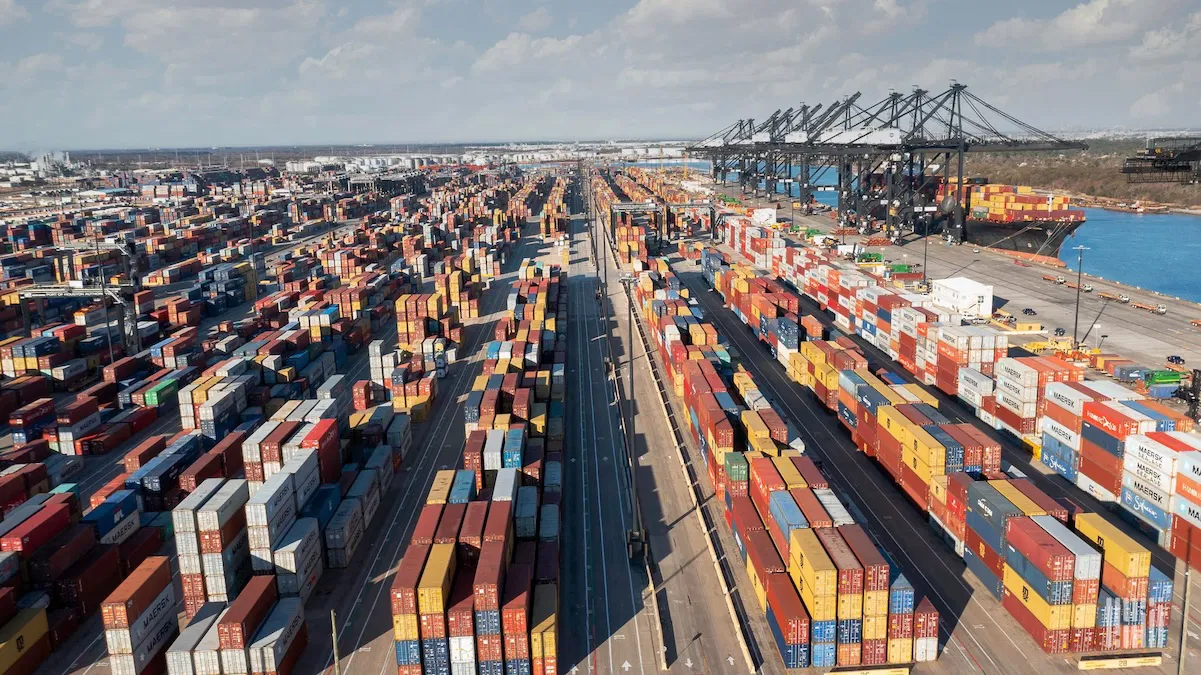As union dockworkers initiated a strike against employers at East and Gulf Coast ports early Tuesday morning, reports of panic-buying surged on social media.
Videos shared on platforms like X and Facebook depicted shoppers racing to purchase water, toilet paper, paper towels, and other essential items at supermarkets and retailers across the U.S.
“Is panic buying already happening because of the port strike? Here are the grocery shelves in the water section at my local Kroger this morning. We’re probably also low on water due to the aftermath of Hurricane Helene in East Tennessee, but it’s still alarming to see this,” wrote Denise Van Patten, a photographer and author, alongside a video on X.
Micheal Coker also posted, “Panic buying is in full force in my little town in South Carolina. Sam’s at 8:30 a.m. had no water. It’s the same situation at Walmart and other grocery stores. Next up will be toilet paper.”
The International Longshoremen’s Association (ILA) is striking against the United States Maritime Alliance (USMX) while seeking a new master contract. Negotiations continued into late Monday night, just before the union’s strike deadline expired at midnight.
Key issues in the negotiations include wages, benefits, and regulations on port automation. The ILA rejected USMX’s latest offer, which proposed a wage increase of 50% over six years.
The strike affects several major ports, including three of the busiest in the U.S.: the Port of New York and New Jersey, the Port of Savannah, Georgia, and Port Houston.
Matthew Shay, president and CEO of the National Retail Federation, urged the Biden administration on Tuesday to intervene in order to resolve the strike.
“A disruption of this magnitude at a critical time in our nation’s economic recovery could have dire consequences for American workers, their families, and local communities,” Shay stated in a release. “After over two years of inflation and while recovering from Hurricane Helene, this strike will create additional hardships for American families.” He called on the administration to prioritize economic stability and take immediate action to avoid further complications.
According to Daniel Munch, an economist at the American Farm Bureau Federation, a prolonged strike could severely disrupt the domestic supply chain.
“For international markets, waterborne exports are crucial for our farmers; they account for over 75% of total U.S. agricultural export volume,” Munch noted in a podcast. “The anticipated strike would mainly impact containerized agricultural exports, which represent 30% of U.S. waterborne agriculture exports by volume. The other 70%, typically grains and oilseeds, are shipped via bulk carriers managed by independent workforces and will not be affected by the strike.”
Munch warned that U.S. farmers could face significant challenges if the strike extends for a week or longer. “The strike could have devastating effects on U.S. agriculture, depending on its duration,” he said. “The expected disruption to agricultural trade could reach about $1.4 billion for each week of the strike. Notably, nearly 80% of waterborne poultry exports leave East Coast ports, along with 56% of raw cotton, 36% of red meat, 30% of dairy products, and 6% of soybeans—all of which rely on containerized exports. A lack of outlets to transport these goods would lead to domestic supply surpluses, ultimately decreasing prices for farmers.”
Major retailers likely to be impacted by the port work stoppage include Walmart, Ikea, Samsung, and Home Depot, according to data from ImportGenius and Arbor Data Science.
Walmart, which led all U.S. retailers in imports to East and Gulf Coast ports last year, stated they are preparing for potential supply chain disruptions.
“We have contingency plans in place for unforeseen disruptions in our supply chain and maintain alternative supply sources to ensure the availability of key products for our customers,” said Jeffrey Essary, Walmart’s global communications spokesperson.





